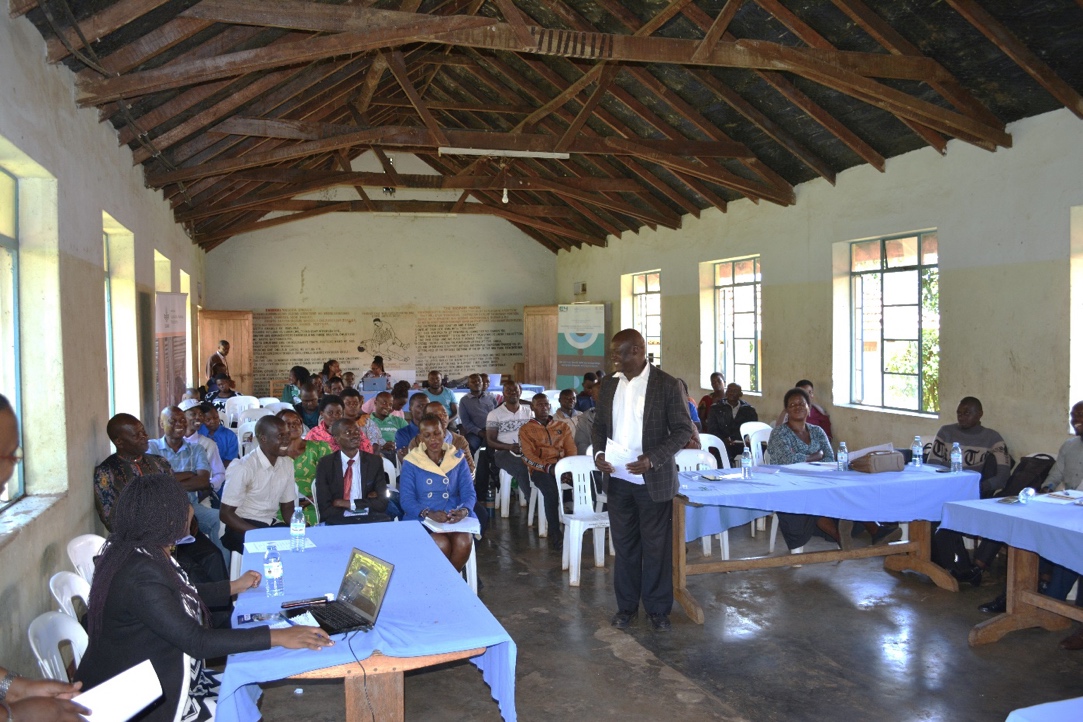
Power in numbers: Farmers, traders and lenders explore expansion of pig businesses in Uganda
Thirty Ugandan pig-agripreneurs will take part in a 6-month pilot training and business incubation program under the CGIAR Research Initiative on Sustainable Animal Productivity to explore opportunities for expanding pig businesses in Uganda.
This first cohort of beneficiaries, comprising 16 men and 14 women, include pig traders, and animal health and artificial insemination service providers in Uganda’s central district of Masaka.
Previous work in the country has shown that optimal business operations in the pig value chain are hindered by weak linkages between pig farmers, aggregators and input and service providers, including artificial insemination technicians, as well as limited access to credit.
The business incubation and mentorship program will focus on best business practices and customer service skills and strengthening of networks with other business development services such as financial service providers. It will also establish links between the agripreneurs and pig farmer collectives within their areas of operation.
'The incubation program will improve operations at pig farmer group level and enhance entrepreneurial capacities and business growth of the pig businesses, especially for women and youth-led businesses.'
- Emily Ouma, Uganda Lead, CGIAR Sustainable Animal Productivity Initiative
Building strength through collective action
As part of the program, farmers will be trained on the importance of farmer collectives for improved collaboration, coordination and negotiation for better prices for inputs, pigs and pig products. Sessions will be held between the farmer groups and incubated businesses to foster and create linkages between the two groups. Participants will also undergo training in agribusiness plan development and receive guidance to pitch their business plans to financial institutions to access credit.
Memoranda of understanding have been signed with Equity Bank Uganda and UGAFODE, a microfinance institution, under which the program will improve networks with financial services, recommend qualifying incubated individuals and businesses to access affordable credit facilities and promote piggery for business. Participants can benefit from an agricultural credit facility with funds from as low as UGX 500,000 (UGX 3,762 = USD 1 at 25 October 2023) at 12% p.a. interest. The average interest rate on loans in Uganda is 20%. Under the program, youth and women will have access to collateral-free credit for a period of 3–6 months.
Loise Kamau, country manager for E4Impact foundation, the program implementing partner, emphasized that proper record keeping will be essential for business expansion.
'Record keeping is key in accessing finance and will be one of our focus areas in this incubation and mentorship program,' she said.

The Masaka District Deputy Chief Administrative Officer, Dennis Kabugo, who launched the program commended the International Livestock Research Institute (ILRI) for uplifting the profile of the piggery sector and value chain actors.
'In the past, some parents did not allow their daughters to get married to pig traders, because pig farming was a despised trade. But thanks to ILRI and your work in the pig value chain, pig traders are now respected members in our communities. There is power in numbers and group dynamics are fundamental to development; I encourage the beneficiaries of this training program to ensure that they are part of a group.'
The pig sector is a key contributor to the economic and social well-being of people in Masaka. The district is the highest producer and consumer of pigs in Uganda; consuming 75% of what it produces. The area has been a project site for ILRI pig value chain research and interventions over the last decade. Together with the National Animal Genetic Resources Centre & Data Bank (NAGRC&DB), the district leadership plans to establish four pig multiplication centres, each with a capacity to produce 350 improved-breed pigs per year. Under the government- funded parish development model (PDM), each of Masaka’s 37 parishes has an interest group that has applied for funding to undertake piggery production.
Future plans
Following graduation of the agripreneurs at the end of the program, an online platform will be created for them, their incubated inputs and service providers to share information and work with other farmer groups. Results of the pilot intervention will inform how the project will be scaled up to other areas of Uganda.




